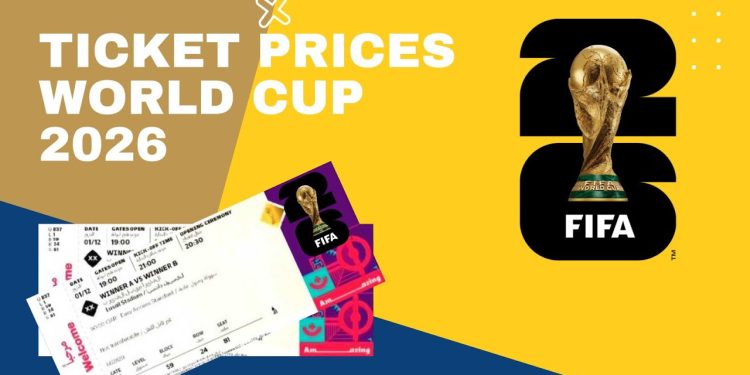FIFA Raises Ticket Prices for 2026 World Cup Amid Surging Demand
FIFA has announced a significant increase in ticket prices for at least nine matches in the upcoming 2026 World Cup, just one day after the sales began. This decision comes in response to an overwhelming demand that continues to persist despite the already high price tags.
The governing body of world football confirmed last month that it would implement a “variable pricing” model for the tournament, set to take place next summer across the United States, Mexico, and Canada. Initially, it was expected that most price adjustments would occur after the December 5 World Cup draw, when matchups were finalized and demand for popular teams surged. However, early indicators showed that fans were already witnessing price hikes during the first phases of ticket sales.
For instance, the price for a Category 1 ticket to the U.S. men’s national team’s second group game increased from $535 to $565 within just two days. Similarly, the Category 3 price jumped from $185 to $205. Price increases were also reported for various quarterfinals and Round of 16 matches, indicating a trend of rising costs across the board.
In particular, a Round of 16 game at MetLife Stadium saw its Category 1 ticket price leap from $895 to $980 in just a few days, with the entire first-phase allotment selling out quickly. Kansas City’s fourth quarterfinal match saw its ticket price escalate from $1,125 to $1,180.
These adjustments, combined with the limited availability of tickets, suggest that many fans are willing to pay what some have deemed “astonishing” prices. Multiple fans who gained the opportunity to purchase tickets reported that they opted not to buy due to the steep costs or the scarcity of desired tickets. By the end of the initial sales phase, tickets for the semifinals and finals were no longer available, further underscoring the high demand.
FIFA made approximately 1 million tickets available during this first “Visa presale” phase, targeting about 4.5 million entrants. Buyers were allowed to purchase up to four tickets per match, with a total limit of 40. However, by the end of the first day, many cheaper ticket categories had already sold out, leading to speculation that FIFA had underestimated market demand.
The organization is adapting ticket prices based on real-time demand and inventory levels, indicating a more dynamic pricing strategy. Additionally, FIFA launched a ticket resale platform, allowing buyers to list tickets for resale at significantly higher prices, from which FIFA earns a commission.
Beyond ticket sales, FIFA has also aggressively promoted its “Right To Buy” (RTB) tokens, which allow fans to bypass lotteries for purchasing tickets. These tokens have sold for hundreds or even thousands of dollars, adding another revenue stream for FIFA.
As ticket availability dwindles, fans are anxiously awaiting the next opportunity to purchase tickets, with a second lottery phase set to begin on October 27. With such high demand and soaring prices, the 2026 World Cup promises to be one of the most lucrative tournaments in history, but also one of the most challenging for everyday fans hoping to attend.








